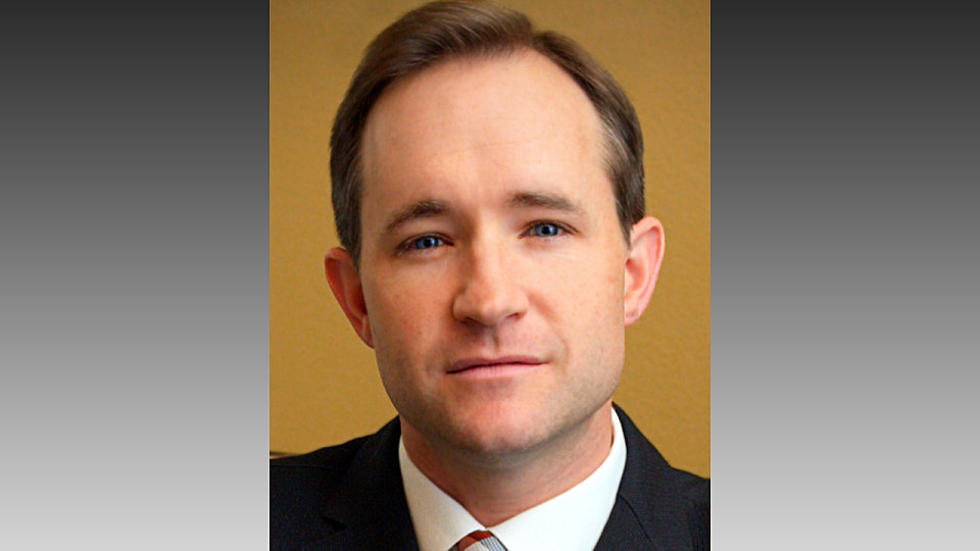
Chad’s Morning Brief: Wendy Davis Blurs Facts About Her Life, Can the Republicans Win the Senate?, and Other Top Stories
Here is your Morning Brief for the morning of January 20, 2014. Give me your feedback below and tune in to The Chad Hasty Show for these and many more topics from 8:30 to 11am. Remember, you can listen online at KFYO.com or on your iPhone/Android with the radioPup App.
Wendy Davis
When it has come to details the Wendy Davis campaign isn't doing real well. Whether it be the Davis education plan or her personal life, details have been fuzzy or just plain lies. According to the Dallas Morning News, some of the things you have heard from Wendy Davis and her campaign about her life either haven't been true or have been blurry. Wayne Slater had the excellent piece yesterday in the Dallas Morning News.
Wendy Davis has made her personal story of struggle and success a centerpiece of her campaign to become the first Democrat elected governor of Texas in almost a quarter-century.
While her state Senate filibuster last year captured national attention, it is her biography — a divorced teenage mother living in a trailer who earned her way to Harvard and political achievement — that her team is using to attract voters and boost fundraising.
The basic elements of the narrative are true, but the full story of Davis’ life is more complicated, as often happens when public figures aim to define themselves. In the shorthand version that has developed, some facts have been blurred.
Davis was 21, not 19, when she was divorced. She lived only a few months in the family mobile home while separated from her husband before moving into an apartment with her daughter.
A single mother working two jobs, she met Jeff Davis, a lawyer 13 years older than her, married him and had a second daughter. He paid for her last two years at Texas Christian University and her time at Harvard Law School, and kept their two daughters while she was in Boston. When they divorced in 2005, he was granted parental custody, and the girls stayed with him. Wendy Davis was directed to pay child support.
In an extensive interview last week, Davis acknowledged some chronological errors and incomplete details in what she and her aides have said about her life.
“My language should be tighter,” she said. “I’m learning about using broader, looser language. I need to be more focused on the detail.”
All campaigns seek to cast their candidate in the most positive light and their opponent in less flattering terms. Davis is presenting her story on websites, interviews, speeches and campaign videos. Last week, NBC’s Today show became the latest media outlet to showcase the story of Davis’ difficult early years in a flattering piece.
Using her story to inspire new voters, particularly women, youths and minorities, is a key part of the campaign’s strategy to overcome the state’s heavy Republican bent.
But likely Republican nominee Greg Abbott and his allies are expected to focus on different details to tell voters a competing story. Some will question how much of her success was her own doing, and how bad her circumstances were to start.
Davis defended the accuracy of her overall account as a young single mother who escaped poverty, earned an education and built a successful legal and political career through hard work and determination.
“Most people would identify with the fact that we tend to be defined by the struggles we came through than by the successes. And certainly for me that’s true,” she said, sitting in her campaign office in Fort Worth. “When I think about who I am and how it’s reflected in the things I worked on, it comes from that place.”
‘Texas success story’
The candidate’s compelling life story begins with 14-year-old Wendy Russell working to help support her single mother in Tarrant County. While still a teenager, Davis married, had a child and divorced, she has said.
“I had a baby. I got divorced by the time I was 19 years old,” she testified in a recent federal lawsuit over redistricting. “After I got divorced, I lived in a mobile home park in southeast Fort Worth.”
As a working mother raising a daughter, Davis enrolled in Tarrant County Community College.
“With the help of academic scholarships and student loans, Wendy not only became the first person in her family to earn a bachelor’s degree but graduated first in her class and was accepted to Harvard Law School,” her website says.
She won a seat on the Fort Worth City Council and later moved to the Texas Senate. Last June, her 11-hour filibuster against abortion regulations made her a champion of women’s health care and propelled her candidacy for governor.
“I’m a Texas success story,” Davis told NBC. “I am the epitome of hard work and optimism.”
There’s no question Davis struggled financially. When her parents separated, her father, Jerry Russell, started a sandwich shop and fledgling dinner theater.
“While he lived that passion, he never made money again and was never able to comply with the terms of my parents’ divorce,” she said. “What it meant for us financially is that things ... completely turned upside down, and it was a real struggle. My brothers and I went to work young — and it was out of necessity, not about wanting to have a little bit of spending money.”
She was 17 and still in high school when she moved in with her boyfriend, a construction worker named Frank Underwood. She got pregnant, married and “some time between [age] 19 and 20 was when Frank and I separated,” she said.
Davis remained in the mobile home a few months, then moved in with her mother before getting her own apartment. She got custody of her daughter, Amber, and Underwood was ordered to pay child support.
Under terms of the divorce, he got a boat, the mobile home and the responsibility for the mortgage on it. She got a 3-year-old Pontiac Grand Prix, a 1972 Firebird and a 1967 Chevy pickup. Davis was 21.
Second chapters
A few months later, she enrolled at the local community college. The idea came from a nurse at the pediatrician’s office where she was working as a receptionist.
Four nights a week, Davis was also waiting tables at her father’s Fort Worth dinner theater, Stage West. It was there that she met her future husband, Jeff Davis, a 34-year-old friend of her father’s.
“One day at the end of a meeting, Jerry asked, ‘How do you like younger women? My daughter wants to go out with you,’” Jeff Davis said in an interview. “I was flattered so I took her out. We dated two or three years, then got married.”
While they dated, Wendy Davis enrolled at Texas Christian University on an academic scholarship and a Pell Grant. After they married, when she was 24, they moved into a historic home in the Mistletoe Heights neighborhood of Fort Worth.
Jeff Davis paid for her final two years at TCU. “It was community resources. We paid for it together,” Wendy Davis said.
When she was accepted to Harvard Law School, Jeff Davis cashed in his 401(k) account and eventually took out a loan to pay for her final year there.
“I was making really good money then, well over six figures,” he said. “But when you’ve got someone at Harvard, you’ve got bills to pay, you’ve got two small kids. The economy itself was marginal. You do what you have to do, no big deal.”
The daughters, then 8 and 2, remained with Jeff Davis in Fort Worth while Wendy Davis was at Harvard.
“Harvard really impressed her with a different culture of energy, really bright young people. That was something she would like to be around. She just enjoys that culture,” Jeff Davis said.
Wendy Davis agreed. “It expanded my perspectives tremendously,” she said. “I went to school with some of the brightest people in the country, and I learned tremendously.”
Political player
After she graduated from Harvard in 1993, Wendy Davis started her own law practice and worked with her husband at the title company he founded. They enrolled their younger daughter, Dru, at Fort Worth Country Day School, a prestigious private school.
Jeff Davis had once served on the Fort Worth City Council, and Wendy Davis expressed interest in running for a seat in 1996.
“I opened some doors for her with people, knew how bright she was and knew she’d do a good job,” he said.
She lost in 1996 but ran again two years later and won. The council seats were nonpartisan but in terms of voting, she was a Republican. Davis said she voted in GOP primaries because she supported mayor and congressional candidate Kay Granger, a Republican, and as a lawyer, she wanted to have a say in selecting judicial nominees in a county where the judges were often Republicans.
Over time, the Davises’ marriage was strained. In November 2003, Wendy Davis moved out.
Jeff Davis said that was right around the time the final payment on their Harvard Law School loan was due. “It was ironic,” he said. “I made the last payment, and it was the next day she left.”
Wendy Davis said that as a lawyer, she contributed too.
“I was a vibrant part of contributing to our family finances from the time I graduated to the time we separated in 2003,” she said. “The idea that suddenly there was this instantaneous departure after Jeff had partnered so beautifully with me in putting me through school is just absurd.”
In his initial divorce filing, Jeff Davis said the marriage had failed, citing adultery on her part and conflicts that the couple could not overcome. The final court decree makes no mention of infidelity, granting the divorce solely “on the ground of insupportability.”
Amber was 21 and in college. Dru was in ninth grade. Jeff Davis was awarded parental custody. Wendy Davis was ordered to pay $1,200 a month in child support.
“She did the right thing,” he said. “She said, ‘I think you’re right; you’ll make a good, nurturing father. While I’ve been a good mother, it’s not a good time for me right now.’”
Wendy Davis declined to discuss the circumstances or terms of the divorce.
“When I decided to run for governor, I promised my girls we would not revisit a time that was terribly difficult for them,” she said. “I will tell you it was very important to me that Dru stay in her childhood home. It was a very difficult time in our life.”
She said: “I very willingly, as part of my divorce settlement, paid child support. That was at my request, not any court telling me I needed to financially support my daughters.”
A former colleague and political supporter who worked closely with Davis when she was on the council said the body’s work was very time-consuming.
“Wendy is tremendously ambitious,” he said, speaking only on condition of anonymity in order to give what he called an honest assessment. “She’s not going to let family or raising children or anything else get in her way.”
He said: “She’s going to find a way, and she’s going to figure out a way to spin herself in a way that grabs at the heart strings. A lot of it isn’t true about her, but that’s just us who knew her. But she’d be a good governor.”
Davis’ daughters, now adults, are supporting their mother’s campaign for governor. Both appear in a campaign video on her behalf.
Jeff Davis said the financial difficulties that Wendy Davis faced before her second marriage were real.
“A lot of what she says is true,” he said. “When she was 21, it became a little easier for her. The first 21 years were about working one, two and three jobs, trying to get through, raising a kid, driving an old Toyota pickup truck that was the smallest you could find.
“She got a break,” Jeff Davis said. “Good things happen, opportunities open up. You take them; you get lucky. That’s a better narrative than what they’re trying to paint.”
This isn't the type of article the Davis camp needed. It doesn't paint Wendy Davis in the type of light the Democrats have wanted. Even Buzzfeed picked up on the story where Davis LIES under oath about her divorce.
The Davis campaign wanted to paint her as a woman who was a poor single mother who had nothing and fought to get into Harvard and fought for everything she had. Instead it reads like Davis got divorced at 21, spent a couple of months in a mobile home, found a sugar daddy who paid for her college education and left him after the bills were paid.
Ouch.
Could the Republicans Take the Senate?
According to The Hill, Republican's chances of taking the Senate are looking up.
Republicans have a new spring in their step as an expanding electoral map has boosted their chances of recapturing the Senate.
In order to flip the six seats they need to win back control, Republicans now believe they have widened the map to nearly a dozen competitive contests — a marked jump from earlier this year.
The latest good news for the GOP came this past week when former Republican National Committee Chairman Ed Gillespie announced he would run in Virginia against Sen. Mark Warner (D), a state previously thought to be off the table.
But while Republicans are feeling increasingly optimistic, they are stopping short of bold public predictions, remembering the dashed expectations of recent election cycles in which Tea Party candidates torpedoed their chances.
“After the last couple of cycles, confidence is hard to come by in our caucus, but we’re hopeful,” said a senior GOP senator. “Michigan, Iowa and Virginia are races where the outcome could exceed our expectations.”
Now, Republicans don’t necessarily have to run the table, putting Democrats on defense in more competitive contests with only two of their own — Kentucky and Georgia — to really defend.
“Before we were looking at having to win six out of seven races. Now it’s six out of 10 or 11,” the Republican senator added.
Their silver bullet is familiar — ObamaCare. Hardly a day goes by in the Senate without a Republican taking to the floor to triumphantly bash the Affordable Care Act, which Senate Minority Leader Mitch McConnell (Ky.) warned would turn out to be a colossal policy mistake when it passed in 2010.
“We are optimistic because I think the American people realize the Democrats really have not led. We’ve had five straight years of really bad economics,” said Sen. Orrin Hatch (R-Utah), who is hoping to take over as chairman of the Senate Finance Committee before he retires in 2018.
“I’m encouraged, I think we have a good chance,” Hatch said of GOP hopes.
Sen. Jeff Sessions (R-Ala.), who would be poised to become the chairman of the Budget Committee if Republicans win the Senate, feels similarly sanguine.
“I’m more optimistic because I sense there’s a growing frustration with the Democratic Senate and the president’s political maneuverings and lack of candor,” said Sessions.
Other Top Stories:
Today’s Guests:
9:35am- Matt Mackowiak, GOP Strategist and Co-Founder of MustReadTexas.com
10:05am- John David Breugal, candidate for Lubbock County Commissioner Precinct 2
These and many more topics coming up on today’s edition of The Chad Hasty Show. Tune in mornings 8:30-11am on News/Talk 790 KFYO, streaming online at kfyo.com, and now on your iPhone and Android device with the radioPup App. All guest interviews can be heard online in our podcast section after the show at kfyo.com.
More From News/Talk 95.1 & 790 KFYO








